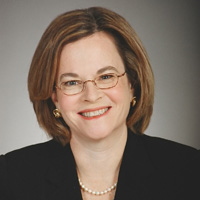 Debra Haffner is an ordained Unitarian Universalist minister who serves as the executive director of the Religious Institute, a multifaith, nonprofit organization dedicated to sexual health, education and justice. Recently she blogged about the results of her institute’s study: Sex in the Seminary.
Debra Haffner is an ordained Unitarian Universalist minister who serves as the executive director of the Religious Institute, a multifaith, nonprofit organization dedicated to sexual health, education and justice. Recently she blogged about the results of her institute’s study: Sex in the Seminary.
The number of schools meeting the criteria to be labeled as “sexually healthy and responsible seminaries” has doubled since 2009. Twenty schools currently hold this distinction: Andover Newton Theological School, Bangor Theological Seminary, Brite Divinity School, Candler School of Theology, Chicago Theological Seminary, Claremont School of Theology, Drew Theological School, Episcopal Divinity School, Harvard Divinity School, Hebrew Union College – Jewish Institute of Religion, The Jewish Theological Seminary, Meadville Lombard Theological School, Pacific School of Religion, Reconstructionist Rabbinical College, Starr King School for the Ministry, Union Theological Seminary, University of Chicago Divinity School, Vanderbilt University Divinity School, Wake Forest University Divinity School, and Yale University Divinity School.
So What?
Haffner and others with the Religious Institute hope that the increasing number of seminaries taking seriously and educating comprehensively about sexuality will result in future clergy who are “prepared to minister to their congregants, and to be effective advocates for sexual health and justice.”
While I took no courses in seminary on sexuality, the topic was addressed within many of the core courses in theology, ethics, and ministry. Whether or not pursuing the Religious Institute’s credential is attractive to a given seminary, I would hope that preparing future clergy to be “prepared to minister to their congregants, and to be effective advocates for sexual health and justice” would be one of many desired outcomes guiding course and degree program development.
- Are the clergy in your congregation effective in their ministry to congregants in areas of sexuality and as advocates for sexual health and justice? What examples contribute to your rating of your congregation’s clergy as effective or ineffective in this area?
- Do you think this topic should be included in seminary studies via a specific course, spread throughout many appropriate courses, both in a separate course and throughout appropriate courses, or not at all? Why?